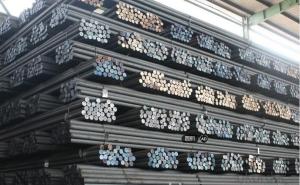Forged Steel Round Bar SAE1045/8620/ 4140/4130 Steel price per kgs
- Loading Port:
- Shanghai
- Payment Terms:
- TT OR LC
- Min Order Qty:
- 3 m.t.
- Supply Capability:
- 100000 m.t./month
OKorder Service Pledge
OKorder Financial Service
You Might Also Like
Item specifice
Forged Steel Round Bar SAE1045/8620/ 4140/4130 Steel price per kgs
Details Information of Forged Steel Round Bar SAE1045/8620/ 4140/4130 Steel price per kgs
| Name | Forged Steel Round Bar SAE1045/8620/ 4140/4130 |
| Shape | Round Bar/Square Bar/Flat Bar/Plate/Wire |
| Standard | GB/ASTM/SAE/AISI/DIN/JIS/EN/BS |
| Surface Treatment: | Black/Peeling/Polished/Machined |
| Delivery Condition: | Hot Rolled or Forged/Peeled or Black Surface |
| Test | SGS/UT 100% Elements Testing |
| Certificate: | ISO/Mill Certificate |
| Service: | 24 hours online service / |
| more than 20 years trading and manufacture | |
| Quality Assurance: | the third party inspection, such as SGS, BV, TUV…etc. is acceptable |
| Packaging Details: | Seaworthy Packaging or as per customer's packing instruction |
| Carbon structure round bar | Q195 Q235A Q235B 10# 20#-55# S45CB |
| Low alloy high strength round bar | Q345A/Q345C/Q345D Q345B Q345E |
| Alloy structure round bar | SAE51B20 20Cr 40Cr 40CrV 20CrMo/30CrMo/35CrMo/42CrMo 20CrMoA/30CrMoA/35CrMoA/42CrMoA/42Cr ML20CrMo/ML30CrMo/ML35CrMo/ML42CrMo B7/SCM435-440 20MnTiB 20CrMnMo 20CrMoH 42CrMoH 40MnB/40MnBH 30Mn2-40Mn2 27SiMn 50CrVA 30CrMnTi |
| Pinion steel | 20CrMnTi 20CrMnTiH 20CrMnTiHCS/20CrMnTiHLD Q20CrMnTi-1/Q20CrMnTi-2 |
| Sucker rod | 20-35CrMoA |
| Free-cutting steel | GT1215S |
| Spring steel | 60Si2MnA 65Mn |
| Ball bearing steel | GCr15 |
Chemical Composition of Forged Steel Round Bar SAE1045/8620/ 4140/4130 Steel price per kgs
| C | Si | Mn | P | S | Cr | Ni | Cu |
| 0.17-0.24 | 0.17-0.37 | 0.35-0.65 | ≤0.035 | ≤0.035 | ≤0.25 | ≤0.25 | ≤0.25 |
| Tensile strength (σb/MPa) | Yield strength (σb/MPa) | Elongation (δ5/%) |
| ≥410(42) | ≥245(25) | ≥25 |
Company Introduction of Forged Steel Round Bar SAE1045/8620/ 4140/4130 Steel price per kgs
CNBM International Corporation is the most import and export platform of CNBM group(China National Building Material Group Corporation) ,which is a state-owned enterprise, ranked in 270th of Fortune Global 500 in 2015.
With its advantages, CNBM International are mainly concentrate on Cement, Glass, Iron and Steel, Ceramics industries and devotes herself for supplying high quality series of refractories as well as technical consultancies and logistics solution.
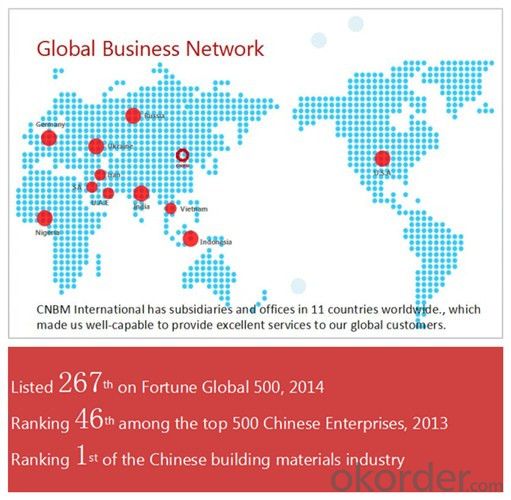
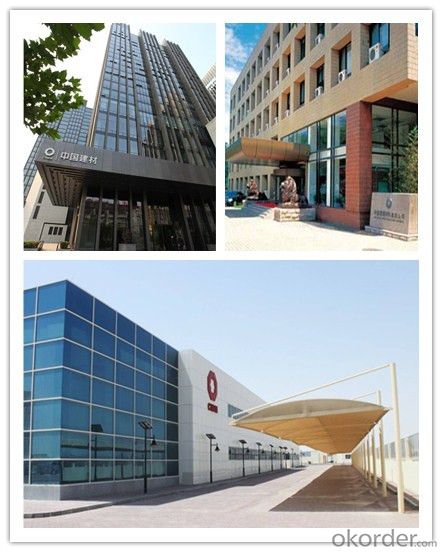
Certificates of Forged Steel Round Bar SAE1045/8620/ 4140/4130 Steel price per kgs
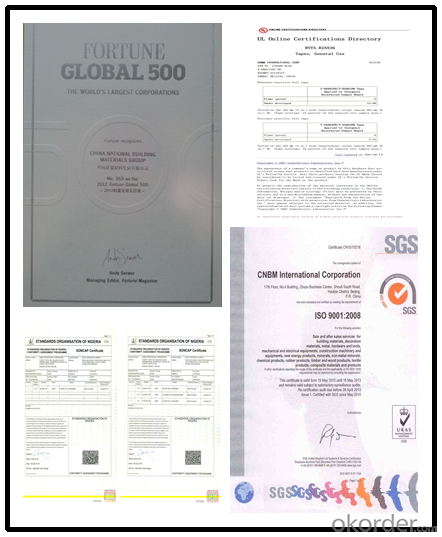
Packaging & Delivery of Forged Steel Round Bar SAE1045/8620/ 4140/4130 Steel price per kgs
Packaging Detail | Sea worthy packing /as per customer's packing instruction |
Delivery Detail | 15 ~ 40 days after receiving the deposit |
Products show of Forged Steel Round Bar SAE1045/8620/ 4140/4130 Steel price per kgs
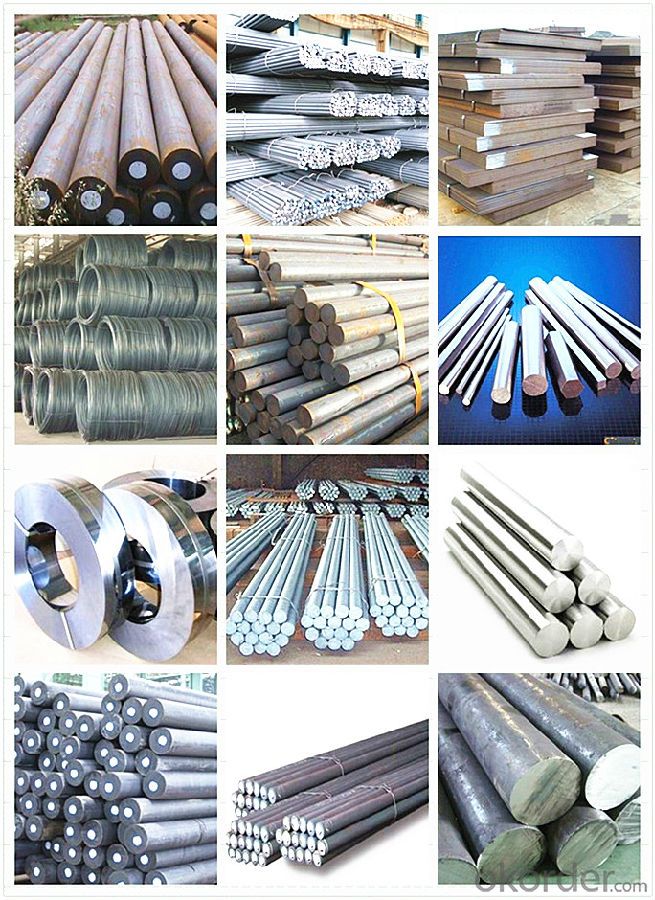
FAQ
Are you a trading company or manufacturer? | Manufacturer |
What’s the MOQ? | 3 metric ton |
What’s your delivery time? | 15-35 days after downpayment received |
Do you Accept OEM service? | Yes |
what’s your delivery terms? | FOB/CFR/CIF |
What's the Payment Terms? | 30% as deposit,70% before shipment by T/T |
Western Union acceptable for small amount. | |
L/C acceptable for large amount. | |
Scrow ,Paybal,Alipay are also ok | |
Why choose us? | Chose happens because of quality, then price, We can give you both. Additionally, we can also offer professional products inquiry, products knowledge train (for agents), smooth goods delivery, excellent customer solution proposals. |
What's your available port of Shipment? | Main Port, China |
What’s your featured services? | Our service formula: good quality+ good price+ good service=customer's trust
|
Where are your Market? | Covering more than 160 countries in the world |
- Q:How does special steel contribute to the production of precision instruments?
- Special steel contributes to the production of precision instruments by providing the necessary strength, durability, and resistance to corrosion. It ensures that the instruments maintain their accuracy and functionality under varying conditions and heavy usage. The high-quality properties of special steel allow for precise machining and shaping, enabling the production of intricate and delicate components required in precision instruments.
- Q:How is martensitic steel used in knife making?
- Martensitic steel is commonly used in knife making due to its high hardness and excellent edge retention properties. Its ability to be heat treated and tempered makes it ideal for creating sharp and durable knife blades. The steel's fine grain structure allows for precise and detailed work, resulting in high-quality and long-lasting knives.
- Q:How does special steel perform in cryogenic wear resistance?
- Special steel is renowned for its outstanding performance in resisting wear and tear in cryogenic environments. When exposed to extremely low temperatures, special steel retains its strength, hardness, and durability, rendering it highly resistant to wearing and friction. This is particularly vital in applications involving cryogenic settings, such as those found in the aerospace industry or in superconductor production. The distinct composition and processing techniques employed in special steel enable it to withstand the challenges posed by cryogenic conditions. It showcases superior toughness, ensuring that it does not become brittle or susceptible to cracking when subjected to low temperatures. Furthermore, the steel's microstructure remains stable, preventing any significant alterations in its mechanical properties when exposed to extreme cold. Moreover, special steel is frequently subjected to various surface coatings or heat treatments to further enhance its resistance to wear. These treatments generate a protective layer or alter the steel's microstructure, thereby reducing the likelihood of wear and prolonging its lifespan in cryogenic environments. To summarize, special steel excels in resisting wear and tear in cryogenic conditions due to its ability to maintain strength, hardness, and durability at extremely low temperatures. Its exceptional toughness, stable microstructure, and potential for surface treatments make it the preferred choice for applications that demand reliable performance in cryogenic settings.
- Q:How does special steel contribute to the industrial machinery aftermarket industry?
- By providing high-quality and durable components, special steel plays a vital role in the industrial machinery aftermarket industry. It enhances machinery performance and longevity, which is crucial in this industry. One of the main advantages of special steel is its exceptional strength and resistance to wear and tear. Regular steel components deteriorate quickly due to heavy loads, extreme temperatures, and corrosive environments. However, special steel alloys are specifically designed to withstand these harsh conditions. This ensures that machinery operates efficiently for a longer period. In addition, special steel offers excellent machinability, making it easier to manufacture intricate and precise components. This enables aftermarket manufacturers to produce replacement parts that fit perfectly into existing machinery. As a result, downtime during repairs and maintenance is minimized. Special steel's machinability also allows for customization, as it can be easily shaped and modified according to the specific requirements of different machinery models. Moreover, special steel's exceptional heat resistance makes it ideal for producing high-temperature components used in industrial machinery. These components need to withstand intense heat without losing their structural integrity. Special steel alloys possess excellent heat resistance properties, ensuring that machinery can operate at high temperatures without compromising performance or safety. Furthermore, special steel contributes to the industrial machinery aftermarket industry by providing corrosion-resistant components. Machinery in industries such as oil and gas or marine is often exposed to corrosive substances or environments. Regular steel components are susceptible to corrosion, leading to premature failure and expensive repairs. However, special steel alloys are highly resistant to corrosion, enhancing the durability and reliability of machinery in these demanding conditions. Overall, special steel's unique properties, including strength, machinability, heat resistance, and corrosion resistance, significantly contribute to the industrial machinery aftermarket industry. By utilizing special steel components, manufacturers can enhance machinery performance, durability, and longevity, reducing downtime, and improving overall operational efficiency.
- Q:How does special steel contribute to the elasticity of products?
- The elasticity of products is improved by special steel, which has a distinct composition and manufacturing process. Elasticity refers to a material's capacity to revert to its initial shape or size after being stretched or deformed. Special steel enhances product elasticity in multiple ways. Firstly, special steel is commonly alloyed with elements like nickel, chromium, or vanadium, which enhance its mechanical properties. These alloying elements alter the steel's crystal structure, resulting in a material with higher yield strength and tensile strength. This increased strength enables the steel to endure higher levels of stress and deformation without permanent damage or failure. Furthermore, the manufacturing process of special steel involves precise control over its microstructure. Techniques such as heat treatment and cold working optimize the steel's grain size and distribution. This controlled microstructure improves the material's elasticity by facilitating uniform deformation. When a product made from special steel faces external forces or stress, its microstructure allows for the redistribution of these forces, minimizing localized deformation and maximizing overall elasticity. Moreover, special steel often contains a high carbon content, which contributes to its elasticity. The carbon atoms in the steel form strong chemical bonds with the iron atoms, resulting in a material with increased hardness and resistance to deformation. This enhanced resistance to deformation enables the steel to exhibit greater elasticity when subjected to external forces. In conclusion, special steel's unique composition, precise manufacturing processes, and specific alloying elements all contribute to its ability to enhance product elasticity. By incorporating special steel in the design and construction of various products, manufacturers can ensure that these products can withstand deformation and return to their original shape, thus increasing their durability and longevity.
- Q:What are the safety considerations when working with special steel?
- When working with special steel, some important safety considerations include wearing appropriate personal protective equipment such as gloves, safety glasses, and steel-toed boots to protect against potential hazards. It is crucial to handle the steel carefully to avoid injuries like cuts, punctures, or strains. Additionally, workers should be cautious of the high temperatures that may be involved during the manufacturing or shaping process and take necessary precautions to prevent burns. Proper training and knowledge of the specific properties and handling techniques of the special steel being used are also essential for ensuring a safe working environment.
- Q:What are the different coating and plating options for special steel?
- There are several coating and plating options available for special steel, including electroplating, galvanizing, powder coating, and ceramic coating. Electroplating involves depositing a layer of metal onto the steel surface using an electric current, providing enhanced corrosion resistance and improved appearance. Galvanizing, on the other hand, involves applying a layer of zinc to the steel through a hot-dip process, protecting it from rust and corrosion. Powder coating involves applying a dry powder to the steel surface, which is then heated to form a protective and durable coating. Ceramic coating, also known as thermal barrier coating, is a high-temperature protective layer that provides excellent resistance to heat and wear. These various options offer different benefits and are chosen based on the specific requirements and desired properties of the special steel.
- Q:How does special steel perform in high-pressure applications?
- High-pressure applications benefit greatly from the exceptional performance of special steel. This steel is specifically designed to endure extreme pressure conditions, making it the perfect choice for industries that require reliable and durable materials for their operations. One of the main advantages of special steel is its high tensile strength, which allows it to handle immense pressure without deforming or failing. This strength is achieved through the use of alloying elements and heat treatment processes that enhance the steel's structural integrity. As a result, special steel can withstand the intense forces exerted on it in high-pressure environments, ensuring the safety and efficiency of the equipment or structures in which it is used. Furthermore, special steel shows excellent resistance to corrosion and oxidation, further enhancing its suitability for high-pressure applications. This resistance helps maintain the steel's structural integrity, preventing any weakening or degradation that could compromise its performance under pressure. Additionally, special steel's resistance to corrosion ensures that it can endure harsh environments, such as those found in the oil and gas extraction, chemical processing, or power generation industries. Another advantage of special steel in high-pressure applications is its ability to retain its mechanical properties even at elevated temperatures. This property is crucial in industries where high temperatures are involved, such as aerospace, nuclear power, or steam generation. The steel's high-temperature strength and stability enable it to withstand the combination of high pressure and elevated temperatures, ensuring reliable performance and long-term durability. To summarize, special steel is an outstanding choice for high-pressure applications due to its high tensile strength, resistance to corrosion and oxidation, as well as its ability to maintain its mechanical properties at elevated temperatures. Its exceptional performance in these demanding conditions makes it a reliable and durable material for industries that operate in high-pressure environments.
- Q:What are the main challenges in machining special steel?
- The main challenges in machining special steel include its high hardness and toughness, which can lead to increased tool wear and reduced cutting speeds. Special steel also tends to have low thermal conductivity, making it prone to heat buildup during machining, resulting in thermal damage to the workpiece and tools. Additionally, the presence of alloying elements in special steel can cause work hardening and increased cutting forces, demanding more robust machining techniques and tools.
- Q:What are the different nuclear grades of special steel?
- The different nuclear grades of special steel refer to specific types of steel that are used in the nuclear industry to meet stringent requirements for safety, reliability, and performance. These grades are designed to withstand the harsh conditions of nuclear power plants and other nuclear facilities. There are several nuclear grades of special steel, each with its own unique characteristics and applications. Some of the commonly used grades include: 1. 304/304L stainless steel: This grade is widely used in nuclear applications due to its excellent corrosion resistance and high strength at elevated temperatures. It is often used in the construction of reactor vessels, heat exchangers, and piping systems. 2. 316/316L stainless steel: Similar to 304/304L, this grade offers superior corrosion resistance and high creep strength. It is commonly used in the construction of components exposed to corrosive environments, such as coolant systems, steam generators, and fuel handling equipment. 3. 321 stainless steel: This grade contains titanium, which stabilizes the steel against sensitization during welding. It is often used in nuclear applications where welding is required, such as piping systems and pressure vessels. 4. Duplex stainless steels: These grades, such as 2205 and 2507, offer a combination of high strength and excellent corrosion resistance. They are commonly used in nuclear applications involving highly corrosive environments, such as seawater-cooled systems and containment structures. 5. Low alloy steels: These steels, such as A533B and A508, are used in the construction of reactor pressure vessels due to their high strength and toughness. These grades are specifically designed to withstand the extreme conditions within a nuclear reactor. It is important to note that the selection of the appropriate nuclear grade of special steel depends on the specific application, considering factors such as temperature, pressure, corrosion resistance, and mechanical properties. These grades undergo rigorous testing and quality control measures to ensure their suitability for use in the nuclear industry.
1. Manufacturer Overview |
|
|---|---|
| Location | |
| Year Established | |
| Annual Output Value | |
| Main Markets | |
| Company Certifications | |
2. Manufacturer Certificates |
|
|---|---|
| a) Certification Name | |
| Range | |
| Reference | |
| Validity Period | |
3. Manufacturer Capability |
|
|---|---|
| a)Trade Capacity | |
| Nearest Port | |
| Export Percentage | |
| No.of Employees in Trade Department | |
| Language Spoken: | |
| b)Factory Information | |
| Factory Size: | |
| No. of Production Lines | |
| Contract Manufacturing | |
| Product Price Range | |
Send your message to us
Forged Steel Round Bar SAE1045/8620/ 4140/4130 Steel price per kgs
- Loading Port:
- Shanghai
- Payment Terms:
- TT OR LC
- Min Order Qty:
- 3 m.t.
- Supply Capability:
- 100000 m.t./month
OKorder Service Pledge
OKorder Financial Service
Similar products
New products
Hot products
Hot Searches
Related keywords
